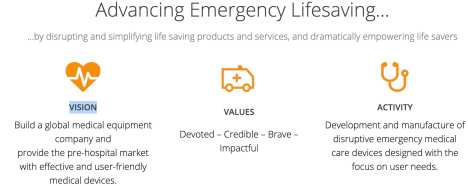During the Cold War U.S. diplomatic and military alliances existed to defend freedom around the world. Today, these alliances are being reshaped to respond to Russian threats to the Baltics and Eastern Europe and to China’s economic, military, and technological influence worldwide.
 Hacking for Allies
Hacking for Allies
The U.S. Department of Defense works with our allies to expand their industrial base. We benefit because it helps the North Atlantic Treaty Organization (NATO) standardize on equipment and our allies’ industrial capacity, capability and workforce can complement those of the United States. Allied countries benefit under the Global Capabilities Program which offers allies opportunities to partner on research and development, with the goal to build prototypes and eventually co-produce systems.
The goal of Hacking for Allies, (which will launch a second cohort next week,) is to connect dual-use startups (those that sell to companies and government agencies) in allied nations to the U.S. defense ecosystem.
Startup ecosystems in many of the smaller NATO countries don’t enjoy the long-established expertise or funding opportunities we have in Silicon Valley or other innovation clusters. For example, today it takes 7 to 10 years for a company in Norway to sell into the U.S. defense market. To shorten that time, we wanted to teach them the best practices of Hacking for Defense/Lean Startup/I-Corps (customer discovery, MVPs, pivots, business model canvas, etc.) And give them a roadmap for how to play in the U.S. defense market.
Hacking for Allies – Norway Edition
Norway is a founding member of the NATO and they are NATO’s bulwark against Russian incursion in the strategically critical “High North” region. Norway has experienced Russian simulated air attacks on Norwegian targets and jamming of GPS signals that threaten civilian aviation. Last fall, Russia conducted a cyberattack on the Norwegian parliament.
The Norwegian Defence Research Establishment, Innovation Norway, and H4XLabs (BMNT’s early stage tech accelerator) just ran the first Hacking for Allies cohort of Norwegian companies. The teams were guided using the “player-coach” approach. The program conducted weekly deep dives with each company working through their challenges. It combined this with sourcing outside experts for all cohort topics of interest. These topics included: Raising funds as a European company, what it takes to work with the DoD, customer discovery for adjacent markets, and more.
85 startups applied for this first cohort. They were down-selected to a few promising teams. Some of the teams included:
- Alva Industries – making 3D printed electric motor stators 20% more efficient. That means more battery life and/or power for unmanned aerial vehicles.
- Excitus: a medical device to clear blocked airways in the battlefield. Their device replaces existing suction pumps with the equivalent of a handheld vacuum cleaner with a sterile disposable cup.
- Fieldmade: An additive manufacturing microfactory with a library of certified printable 3D parts, which radically reduces parts inventory.
- Ubiq Aerospace: started as de-icing for drones but potentially pivoting to sensor data fusion.
The teams launched out of the program talked to tons of people in the U.S. they never would have connected with (“it would have taken us years to make these connections”), made pivots, built new product suites and capabilities around their core services – all of which made them attractive to wider markets — and raised additional funding.
Now a new cohort of the program is getting under way. Innovation offices from NATO countries and other allies who want to teach their dual-use startups how to work with the U.S. government should attend the Hacking for Allies webinar February 23rd at 8 am Pacific, 11 am Eastern.
Register here.
Filed under: Hacking For Defense, National Security |







Leave a Reply